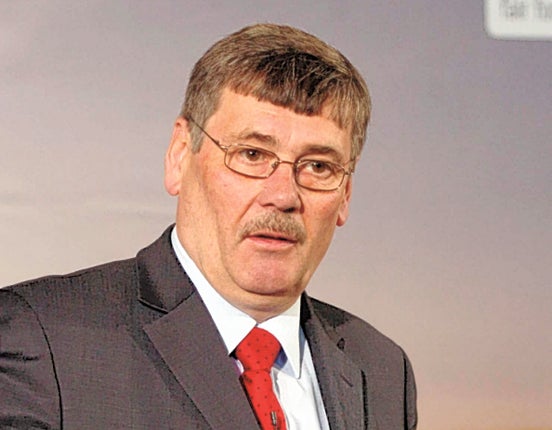Government 'could have broken UN rules' on the treatment of lawyers in Iraq inquiry
Defence Secretary criticised lawyers in Parliament

Your support helps us to tell the story
From reproductive rights to climate change to Big Tech, The Independent is on the ground when the story is developing. Whether it's investigating the financials of Elon Musk's pro-Trump PAC or producing our latest documentary, 'The A Word', which shines a light on the American women fighting for reproductive rights, we know how important it is to parse out the facts from the messaging.
At such a critical moment in US history, we need reporters on the ground. Your donation allows us to keep sending journalists to speak to both sides of the story.
The Independent is trusted by Americans across the entire political spectrum. And unlike many other quality news outlets, we choose not to lock Americans out of our reporting and analysis with paywalls. We believe quality journalism should be available to everyone, paid for by those who can afford it.
Your support makes all the difference.The Government could have broken UN rules on the treatment of lawyers after publicly criticising the firms acting for Iraqi clients at an inquiry into allegations of murder and torture by the British military, a senior European legal official said today.
The judge-led public inquiry, which cost £31m, found on Wednesday that the claims were “completely baseless” and that the allegations of war crimes against British soldiers were based on “deliberate lies, reckless speculation and ingrained hostility”.
The findings prompted the Defence Secretary Michael Fallon to criticise in Parliament lawyers who conceded late in the five-year inquiry that there was no evidence of unlawful killing. But Jonathan Goldsmith, head of the group which represents about a million European lawyers, criticised the Government for shaming the lawyers.
He said it went against UN principles that lawyers should not be identified with clients or their clients’ causes. “[Mr Fallon] must have known that this would let loose the attack dogs of the press on the lawyers concerned, and potentially intimidate other lawyers from taking up future cases involving allegations against the armed forces,” said Mr Goldsmith, the secretary general of the Council of Bars and Law Societies of Europe, in a blog on the Law Society Gazette website.
“Governments have enormous power and almost unlimited resources. That is why there are international codes protecting lawyers who bring cases against them.
“If lawyers who bring cases against governments are, on the other hand, shamed in parliament, with the inevitable consequence that the government’s friends in the press will monster them, then all of the legal profession should take careful notice.”
The inquiry was set up after allegations of war crimes following the Battle of Danny Boy on 14 May 2004 in Iraq. Labour former defence secretary Bob Ainsworth, who set up the inquiry in 2009, rounded on Public Interest Lawyers, who represented Iraqi claimants, and said that the legal system has been abused.
But lawyers said that the inquiry had been necessary, morally justified and politically required. John Dickinson of Public Interest Lawyers denied that the firm had anything to be ashamed of.
Join our commenting forum
Join thought-provoking conversations, follow other Independent readers and see their replies
Comments